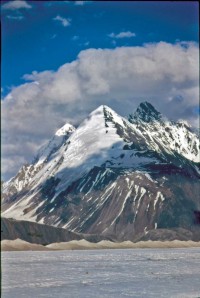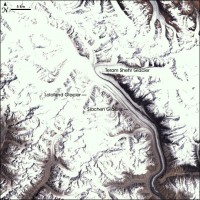New Delhi (PTI): Himalayan glaciers, including the world’s highest battlefield Siachen, are melting due to variations in weather and not because of global warming, Jammu University scientists have claimed.
“The field studies from other glaciers in India also corroborate the fact that inter and intra-annual variations in weather parameters have more impact on the glaciers of northwest Himalayas, rather than any impact due to global warming,” they said.

Siachen Junction Peak
Geologists R K Ganjoo and M N Koul of Jammu University’s Regional Centre for Field Operations and Research of Himalayan Glaciology visited the Siachen glacier to record changes in its snout last summer. “To our surprise, the Siachen glacier valley does not preserve evidences of glaciation older than mid-Holocene, suggesting that the glacier must have advanced and retreated simultaneously several times in the geological past, resulting in complete obliteration and modification of older evidences,” they said reporting their findings in ‘Current Science’.

See larger satellite image and map here
Ganjoo and Koul dubbed as “hype” some earlier studies which suggested that the Himalayan glaciers were melting fast and caused serious damage to the Himalayan ecosystem. There is sufficient field and meteorological evidence from the other side of Karakoram mountains that corroborate the fact that glaciers in this part of the world are not affected by global warming, they said.
“Overwhelming field geomorphological evidences suggest poor response of the Siachen glacier to global warming. The snout of the Siachen glacier of 2008 has retreated by about 8-10 metres since 1995, making an average retreat of 0.6 metre per year,” the scientists said. Ganjoo said that the east part of the Siachen glacier showed faster withdrawal of the snout that is essentially due to ice-calving, a phenomenon that holds true for almost all major glaciers in the Himalayas and occurs irrespective of global warming.
The west part of the Siachen has reduced due to the action of melting water released from the retreated tributary glacier, he said. Ganjoo contended the Siachen glacier shows hardly any retreat in its middle part and thus defies the “hype” of rapid melting. See story here.
Benny Peiser’s CCNet Comments: Research findings by R.K. Ganjoo and M.N. Koul are published in today’s issue of Current Science, Vol. 97, NO. 3, 10 August 2009 and are available here.




